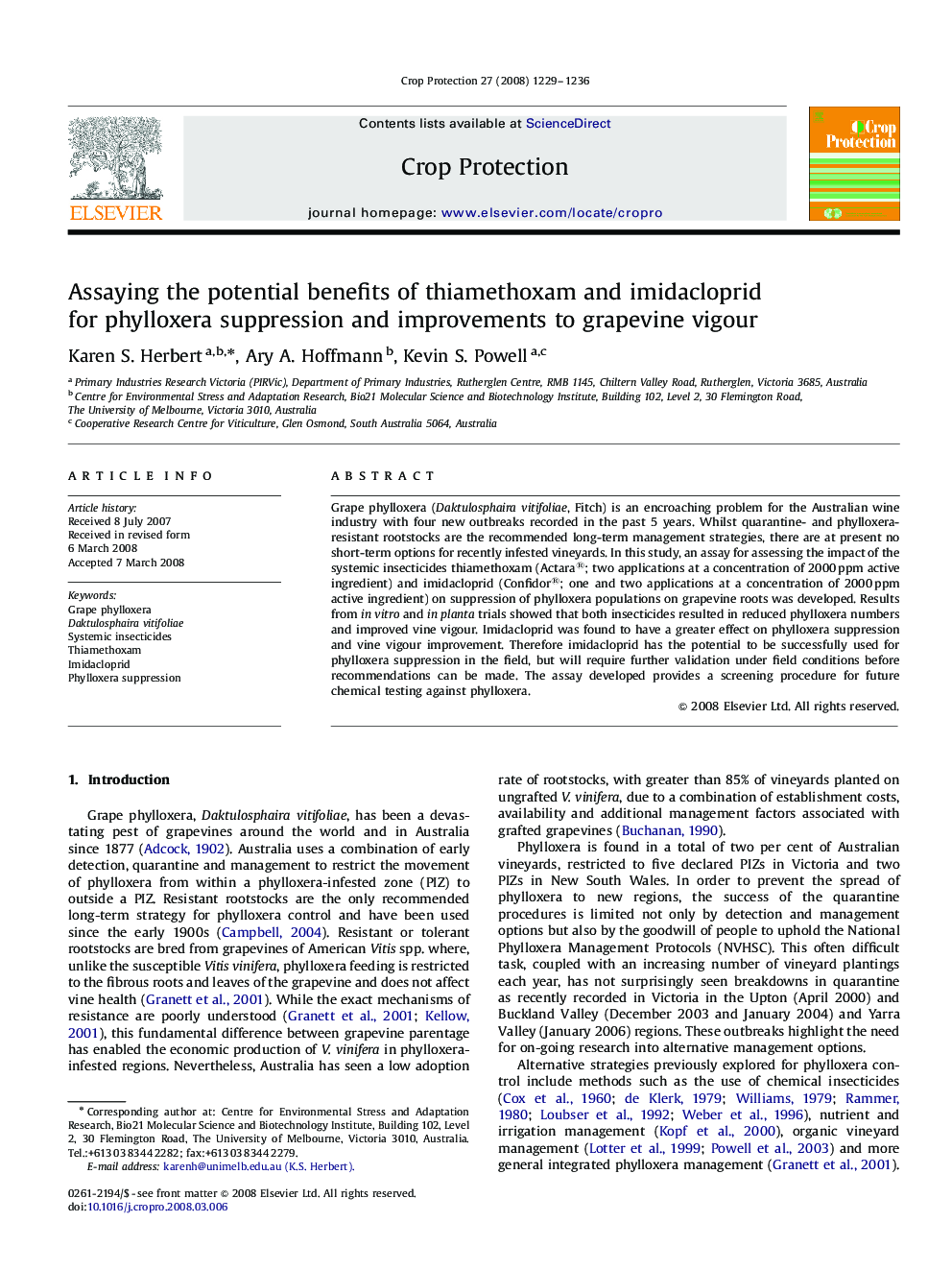| Article ID | Journal | Published Year | Pages | File Type |
|---|---|---|---|---|
| 4507563 | Crop Protection | 2008 | 8 Pages |
Grape phylloxera (Daktulosphaira vitifoliae, Fitch) is an encroaching problem for the Australian wine industry with four new outbreaks recorded in the past 5 years. Whilst quarantine- and phylloxera-resistant rootstocks are the recommended long-term management strategies, there are at present no short-term options for recently infested vineyards. In this study, an assay for assessing the impact of the systemic insecticides thiamethoxam (Actara®; two applications at a concentration of 2000 ppm active ingredient) and imidacloprid (Confidor®; one and two applications at a concentration of 2000 ppm active ingredient) on suppression of phylloxera populations on grapevine roots was developed. Results from in vitro and in planta trials showed that both insecticides resulted in reduced phylloxera numbers and improved vine vigour. Imidacloprid was found to have a greater effect on phylloxera suppression and vine vigour improvement. Therefore imidacloprid has the potential to be successfully used for phylloxera suppression in the field, but will require further validation under field conditions before recommendations can be made. The assay developed provides a screening procedure for future chemical testing against phylloxera.
